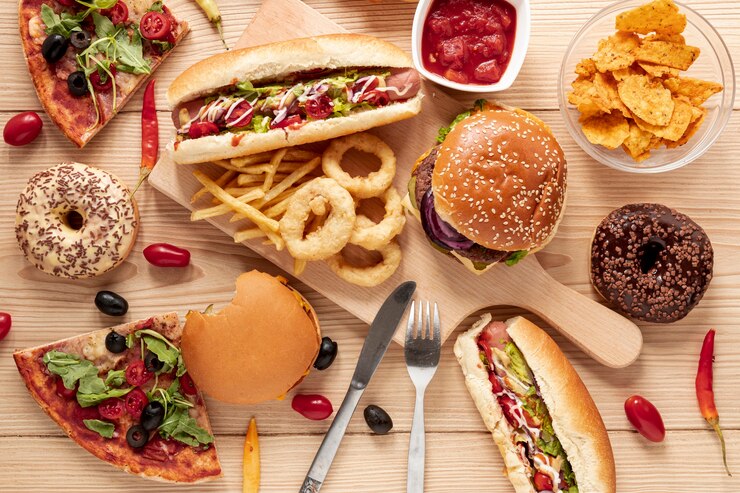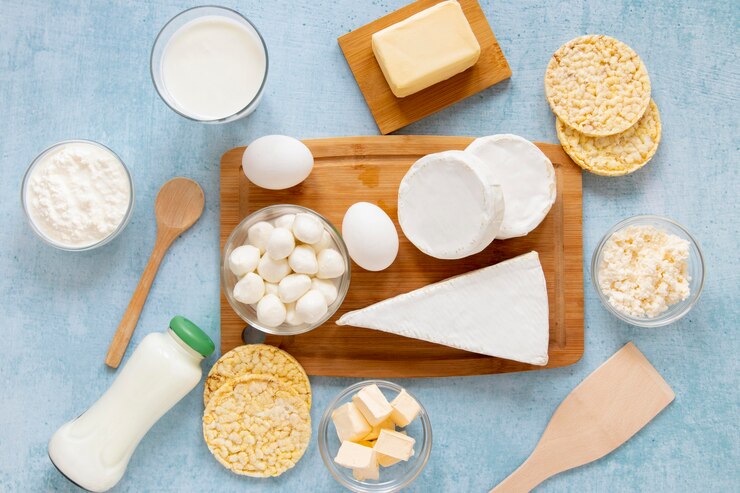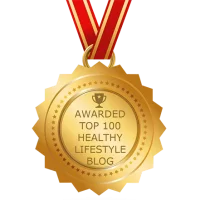Maintaining healthy cholesterol levels is paramount for overall well-being. High cholesterol can significantly increase the risk of cardiovascular diseases, stroke, and other health complications. While genetics and lifestyle factors play crucial roles in cholesterol levels, diet also plays a significant part. We delve into the top ten worst foods for high cholesterol, providing insights into their effects on lipid profiles and offering healthier alternatives for a balanced diet.
Top Ten Worst Foods for High Cholesterol
1. Trans Fats:
Trans fats are perhaps the most notorious culprits when it comes to raising LDL (low-density lipoprotein) cholesterol levels while lowering HDL (high-density lipoprotein) cholesterol levels, thus increasing the risk of heart disease. Found in partially hydrogenated oils commonly used in fried foods, baked goods, and processed snacks, trans fats should be avoided or minimized in the diet.

Healthier Alternatives: Opt for healthier fats like olive oil, avocado oil, or canola oil for cooking and baking. Incorporate whole, unprocessed foods such as fruits, vegetables, nuts, and seeds into your diet to promote heart health.
2. Saturated Fats:
Saturated fats, predominantly found in animal products like red meat, butter, cheese, and full-fat dairy, can raise LDL cholesterol levels and contribute to arterial plaque buildup, increasing the risk of atherosclerosis and heart disease.
Healthier Alternatives: Choose lean cuts of meat, poultry without skin, and low-fat or fat-free dairy products. Increase intake of plant-based protein sources such as beans, lentils, tofu, and tempeh to reduce saturated fat consumption.
3. Processed Meats:
Processed meats like bacon, sausage, hot dogs, and deli meats are high in saturated fats and often contain added sodium and preservatives. Regular consumption of these meats has been linked to elevated cholesterol levels and an increased risk of heart disease.
Healthier Alternatives: Opt for lean cuts of unprocessed meats or poultry, such as grilled chicken or turkey breast. Incorporate plant-based protein sources like beans, lentils, and chickpeas into sandwiches and salads for a heart-healthy alternative.
4. Fast Food:
Fast food items like burgers, fries, fried chicken, and pizza are typically loaded with trans fats, saturated fats, sodium, and calories. Regular consumption of fast food not only contributes to high cholesterol levels but also increases the risk of obesity and related health issues.

Healthier Alternatives: Prepare homemade versions of fast food favorites using lean meats, whole grains, and plenty of vegetables. Choose restaurants that offer healthier options or focus on fresh, minimally processed ingredients.
5. Sugary Foods and Beverages:
Highly processed foods and sugary beverages like sodas, candies, pastries, and sweetened cereals not only contribute to weight gain but also have been associated with adverse effects on cholesterol levels. Excessive sugar intake can lead to insulin resistance, inflammation, and dyslipidemia.
Healthier Alternatives: Swap sugary snacks and desserts for fresh fruits, unsweetened yogurt, or dark chocolate in moderation. Choose water, herbal teas, or sparkling water with a splash of citrus over sugary beverages to quench thirst.
6. Fried Foods:
Fried foods like French fries, onion rings, fried chicken, and potato chips are typically cooked in unhealthy oils high in trans fats and saturated fats. Regular consumption of fried foods can lead to weight gain, elevated cholesterol levels, and an increased risk of heart disease.
Healthier Alternatives: Experiment with alternative cooking methods such as baking, grilling, steaming, or air-frying to reduce the need for excessive oil. Enjoy oven-baked sweet potato fries, roasted vegetable medleys, or homemade kale chips for healthier snack options.
7. Full-Fat Dairy Products:
While dairy products like whole milk, cheese, and ice cream are excellent sources of calcium and protein, they are also high in saturated fats. Consuming full-fat dairy regularly can contribute to elevated LDL cholesterol levels and increase the risk of heart disease.

Healthier Alternatives: Opt for low-fat or fat-free dairy products like skim milk, Greek yogurt, or reduced-fat cheese to reduce saturated fat intake. Alternatively, explore dairy-free alternatives such as almond milk, coconut yogurt, or cashew cheese for a plant-based option.
8. Margarine:
While margarine was once promoted as a healthier alternative to butter due to its lower saturated fat content, many varieties contain trans fats from partially hydrogenated oils. These trans fats can have detrimental effects on cholesterol levels and heart health, particularly when consumed in excess.
Healthier Alternatives: Choose soft margarine spreads labeled as “trans fat-free” or opt for healthier alternatives like olive oil-based spreads or avocado for a flavorful and heart-healthy option. Alternatively, enjoy small amounts of real butter in moderation as part of a balanced diet.
9. Commercially Baked Goods:
Commercially baked goods such as cakes, cookies, pastries, and doughnuts are often made with refined flour, sugar, and unhealthy fats like trans fats and saturated fats. These indulgent treats can significantly contribute to elevated cholesterol levels and weight gain when consumed regularly.
Healthier Alternatives: Bake homemade versions of your favorite treats using whole grain flours, natural sweeteners like honey or maple syrup, and healthier fats like olive oil or mashed avocado. Experiment with nutritious add-ins like nuts, seeds, and dried fruits for added flavor and texture.
10. Shellfish:
While shellfish like shrimp, lobster, and crab are low in saturated fats and cholesterol, they are often prepared in ways that increase their cholesterol content, such as frying or drowning in butter or creamy sauces. Additionally, individuals with high cholesterol or cardiovascular issues should consume shellfish in moderation due to their high cholesterol content.
Healthier Alternatives: Enjoy shellfish steamed, grilled, or baked with minimal added fats and sauces to maximize their nutritional benefits. Incorporate a variety of seafood into your diet, including fatty fish like salmon, mackerel, and sardines, which are rich in heart-healthy omega-3 fatty acids.
Maintaining healthy cholesterol levels is essential for overall health and well-being. By avoiding or minimizing the consumption of the top ten worst foods for high cholesterol and incorporating healthier alternatives into your diet, you can significantly reduce the risk of cardiovascular diseases and promote optimal heart health. Remember to focus on a balanced diet rich in fruits, vegetables, whole grains, lean proteins, and healthy fats to support a healthy lipid profile and overall vitality.





